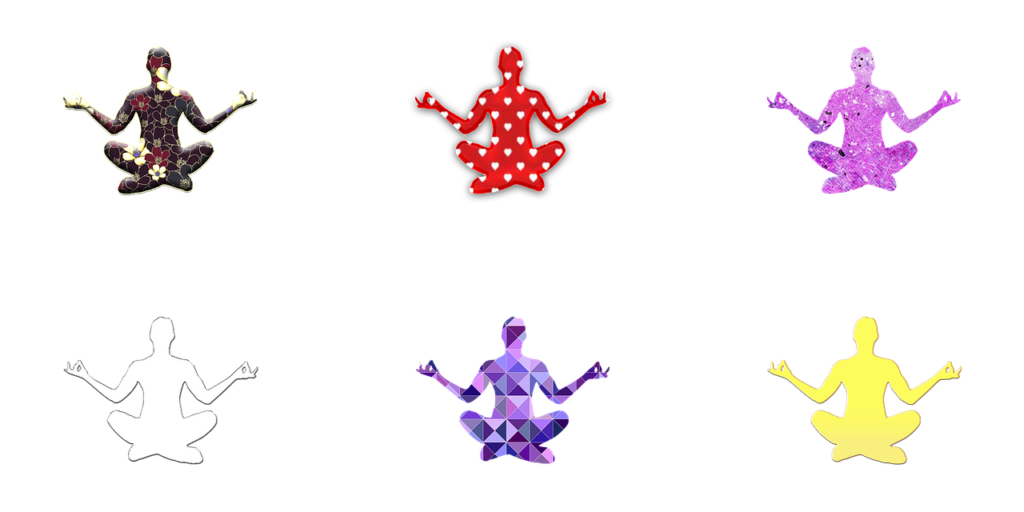Introduction and Understanding Yoga: A Practice Beyond Physical Exercise
In the realm of fitness and wellness, yoga has been shown to be much more than a fleeting trend. It is a physical and mental practice that originated from Indian philosophy and has become an integral part of many people’s lives, providing numerous benefits for both the mind and body. To experience the maximum benefits of yoga, regular yoga practice is essential. Research has found that practicing yoga regularly helps not only to increase physical strength and flexibility but also to reduce stress, improve sleep quality, and enhance overall life satisfaction.
Understanding yoga begins with recognizing that it’s more than merely a series of postures or asanas, it’s a lifestyle. Yoga includes mindfulness, breathing exercises, and meditation, all of which contribute to a holistic approach to well-being.
A yoga practice typically includes the performance of various postures on a yoga mat, each designed to build strength, increase flexibility, and improve balance. But yoga is not only about physical benefits. It’s also a meditative practice designed to center the mind and help achieve a state of inner peace and tranquility. This balance of physical and mental exercises is at the core of the philosophy of yoga.
There are many types of yoga to choose from, each with its unique emphasis and benefits. For instance, Hatha yoga focuses on the basics, making it an excellent choice for beginners. Kundalini yoga, on the other hand, is more spiritual, focusing on energy, breathwork, and chanting. Then there’s Vinyasa, which links one pose to the next using breath, great for those who like a more vigorous workout. This variety ensures that everyone, regardless of age, fitness level, or goals, can find a style that suits them.

10 Benefits
Yoga Helps to Reduce Stress
Studies have found that yoga can help reduce stress levels and enhance mood. The combination of physical postures, breathing exercises, and meditation contributes to a reduction in cortisol, the primary stress hormone. The practice of yoga also promotes mindfulness, a state of active, open attention on the present, which further aids in stress management.
Yoga Improves Heart Health
Regular yoga practice has been linked with improved heart health. It may help lower high blood pressure, reduce cholesterol levels, and keep arteries flexible—all crucial for preventing heart diseases. According to the National Institutes of Health, yoga may help prevent heart disease by increasing heart rate variability, an indicator of good heart health. NIH research on Yoga and Heart Health
Yoga Enhances Flexibility and Balance
Yoga postures are designed to stretch, strengthen, and balance the body. Each yoga pose works various muscles, helping to increase strength in the legs and core and enhance flexibility around the spine and hips. With regular practice, yoga can significantly improve balance and mobility, essential aspects of fitness that often decline with age.
Yoga Helps Improve Sleep Quality
Studies suggest that incorporating yoga into your routine can help promote better sleep. Yoga can enhance the secretion of melatonin, a hormone that regulates sleep and wakefulness. Furthermore, the practice of mindfulness and relaxation techniques within yogacan help manage stress and anxiety, common culprits for sleep problems.
Yoga Promotes Better Breathing
Breathing exercises, known as pranayama, are a vital part of yoga. Regular practice of these techniques can improve lung capacity and overall respiratory function, making it a potential beneficial practice for those with respiratory conditions like asthma or chronic obstructive pulmonary disease. Yoga for Better Breathing
Yoga Supports Mental Health
Beyond the physical benefits, yoga may also support mental health. Research shows that yoga helps to decrease symptoms of anxiety and depression, promoting a sense of wellbeing and relaxation. Yoga’s meditative aspect encourages mindfulness and self-awareness, which can lead to improved mental health. Yoga and Mental Health
Yoga Helps to Alleviate Chronic Pain
Whether it’s chronic low back pain, arthritis, or carpal tunnel syndrome, yoga may help. By increasing flexibility and strength, yoga can alleviate discomfort and improve functional movement. In fact, the American College of Physicians recommends yoga as a first-line treatment for chronic lower back pain. Yoga for Chronic Pain Management
Yoga Promotes Healthy Eating and Weight Management
Yoga may also contribute to weight management and healthier eating habits. By promoting mindfulness, yoga encourages more mindful eating—recognition of physical hunger and fullness cues, which can help prevent overeating. Yoga for Weight Management
Yoga Enhances Strength and Stamina
Despite its reputation for being a gentle form of exercise, yoga does, indeed, build strength. Many yoga poses require you to support your body weight in new ways, including balancing on one leg or supporting yourself with your arms. Over time, this can build strength in major muscle groups. WebMD’s article on the strength and stamina benefits of yoga.
Yoga Boosts Immunity
By promoting better sleep, reducing stress, and keeping you fit, yoga helps to boost your immune system function. Plus, the practice of specific yoga postures can stimulate the lymphatic system, which plays a vital role in protecting the body from illness and disease.

Getting Started With Yoga and Conclusion
Now that we’ve established the numerous benefits of yoga, you might be wondering how to get started. If you’re new to yoga, it’s always a good idea to start with a beginner’s class. In-person classes, taught by a registered yoga instructor, will ensure you’re performing postures correctly and safely. Many yoga studios offer beginner classes, and they will likely have props available that can help you modify poses to suit your level.
However, attending a physical yoga class may not be an option for everyone. Luckily, there are numerous online resources and video classes that provide the same guidance right in the comfort of your own home. These resources can help you learn the basics of yoga postures, breathing techniques, and mindfulness.
In conclusion, yoga offers a wealth of physical and mental health benefits, from stress reduction and improved sleep to increased strength and flexibility. Supported by a growing body of research, it’s clear that incorporating yoga into your routine can offer significant benefits for both your mind and body. So why wait? Roll out your yoga mat, and begin your journey towards a healthier, happier life with yoga.





















